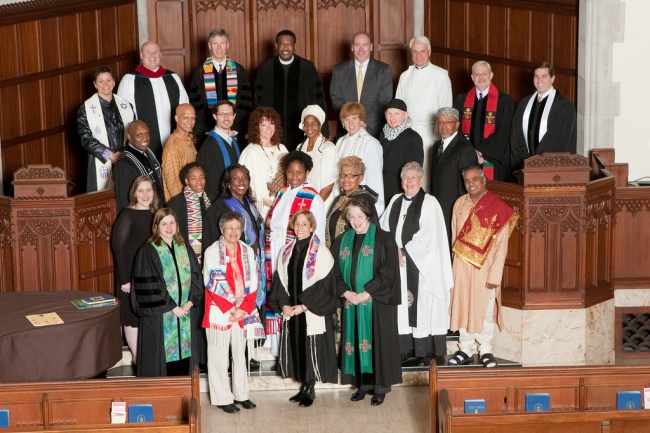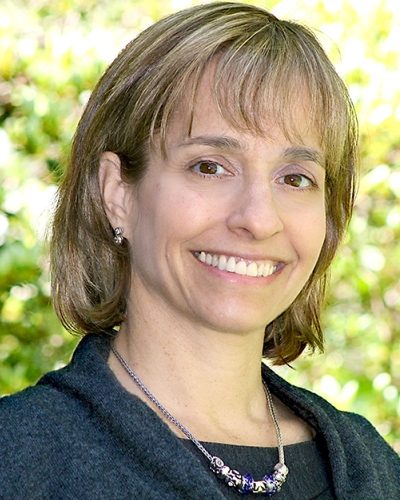Yesterday, a well-known white supremacist and Ku Klux Klan leader, Frazier Glenn Cross, approached a Jewish Community Center and Jewish Assisted Living with a gun in hand with intent on murdering Jews. In an instant three souls were tragically stolen from our world: a grandfather and grandson who belonged to the Church of Resurrection, and the daughter of a female resident of Village Shalom, a Jewish assisted-living facility.
Does Cross not know that the world of hatred belongs to the past?
We left Egypt long ago. We will not allow the fears of pre-Pesach pogroms of our past or the neo-Nazi rants of our present to impact our commitment to Jewish celebration and survival.
Does he not know that America, built upon the promise of religious freedom, has long embraced that centuries-old vision of inclusion?
Jews, Christians, Muslims, and even non-believers workout together at JCCs and YMCAs. They live together in neighborhoods. Together, they feed the hungry, house the homeless, and heal the world. No words or acts of hate can divide us or take away the vision of love articulated by so many of our faiths. Loving God, loving our neighbors, and loving the stranger are ingrained within all of us.
Does he not know that violence will never bring about redemption?
The seder teaches that Elijah will arrive only when doors and hearts are truly opened. The time of peace that Elijah promises requires a commitment to universal compassion and kindness.
Does he not know that hatred against anyone diminishes everyone?
May the victims of Kansas City be sheltered beneath the wings of God’s presence. May the victims’ families be consoled by the global expressions of sympathy being offered. On this Erev Pesach, as we recall our painful past, may we commit ourselves to speaking out against hateful words before they become hateful acts and may we create a world that values difference and celebrates diversity.






One Response
Old hatreds die hard, and, on the rare occasions when they do die, they often give birth to newer and more virulent variations of the same evil urge. We can concern ourselves with the corrosive effects on the character of those who hate or we can focus on the harm suffered by those who are hatred’s real victims. It is a matter of triage. We must be honest and recognize that some people thrive on hatred, on anger and on bitterness and resentment. Such feelings give their lives meaning. So often, the hatreds of today are built upon hatreds of the past–racial ideologies of today can draw strength from religious justifications for murder in the past, which in turn have drawn strength from clashes of civilizations in the ancient world that encouraged contempt for other nations and peoples.
It is not an easy question and there are no easy answers. Mahatma Ghandi may have been on to something when he said that the weak can never forgive, and that weakness is the attribute of the strong. The weak ought not to have to forgive– for it can never be real forgiveness. Such forgiveness can only serve as a legitimization of the position of power that the strong hold over the weak. Some acts are, by their very nature, unforgivable. Offering forgiveness for such acts becomes, in itself, a terrible, shameful act of wickedness. Weakness is not of itself a virtue. Weakness is merely weakness, at best a neutral attribute. But, when an instinct to self-debasement and self-degradation derives from a people’s or a person’s weakness, then weakness itself has become immorality. So often, the weak get the blame, while the strong get the benefit of the doubt.
A people concerned at best with survival can never be strong. Such a people can never be whole, they can never find true meaning for themselves and can never exhibit real virtue. In many ways we Jews are, as a people, an emotionally, psychologically and spiritually damaged people. Acts of evil, perpetrated against us thousands of years ago or more recently, continue to shape how we think and act today. They are more a part of our social memory than are our brief respites from the horrors of massacre and occupation, enslavement and exile, genocide and near- annihilation.
If one accepts that weakness is not inherently virtuous, that weakness has at least as much potential to degrade as it has to ennoble, and that weakness at the very least leaves us vulnerable, than one must inevitably conclude that strength is something for which Jews should strive. We run immediately up against the fact that Jews are not only a damaged people, but a small people also. Always forced to accomodate more powerful civilizations, we find ourselves, seemingly, unable to take our destiny into our own hands. We remain captive to the influences of other peoples and we are shaped by the world instead of shaping it. Even the bravest, most determined amongst us find themselves facing the simple reality that the boat is so small, while the sea is so vast.
Several generations of sovereign Jewish in Israel life have done much to give Jews there a sense of the responsibilities required of a free people. Yet, a few generations alone may not be enough to undo the damage wrought by nearly a hundred generations spent in exile, nor to reshape institutions of Jewish life established even before the Long Exile, further back, after the first destruction of Jewish sovereignty in Eretz Israel. And certainly, our more recent texts, themselves composed in exile, are in the nature of their guidance and instructions for Jews, a reflection of the degrading circumstances into which Jews had fallen.
One may reasonably state that freedom is as much an attitude, that it is as much in the mind as it is any legal, political or corporeal reality. Montiesque wrote that it is easier to make free men act like slaves than it is to make slaves like free men. To this may be added that it is easier to make free men think like slaves than it is to make slaves think like free men. Can it be that Jews, the great majority of whom now live in free nations, have not yet re-learned how to think like free men (and women)?
A small people may experience freedom, but can a small people ever truly be independent? They cannot. The country of a small people must rely upon alliances with more powerful civilizations and nations— at the very least it must accomodate the reality of their existence when making both it’s daily and it’s existential decisions. And, a small people living in the midst of a larger society, even as equals, must ultimately submit it’s customs and mores for the approval of the larger society. The result is that a small people, invevitably– in every generation– surrenders more of it’s soul. The weak are asked to forgive the strong.
For myself, I refuse to accept that Jews are predestined to be a small people, a people whose happiness is dependent on the goodwill of other nations, whose own national life is contingent on the laws, governments and social norms of other nations. We take our destiny into our own hands in large measure by how we think. For when we think, inevitably– we act. It is unacceptable for Jew or Gentile to beleive that the Jew’s destiny can be held captive by those who do not share our joys but strive instead towards our sorrows and pain. We may be guided by tradition, but we are not bound by it. Judaism has the virtue of being an ancient religion, a religion that has evolved and changed to meet new circumstances. It is extraordinarily resilient. There is much in our history and in our customs that can prepare us well for new challenges in the future. To be blunt, there is much there to help us break out of the cycle of being a small people subject to the whims and cruelties of others.